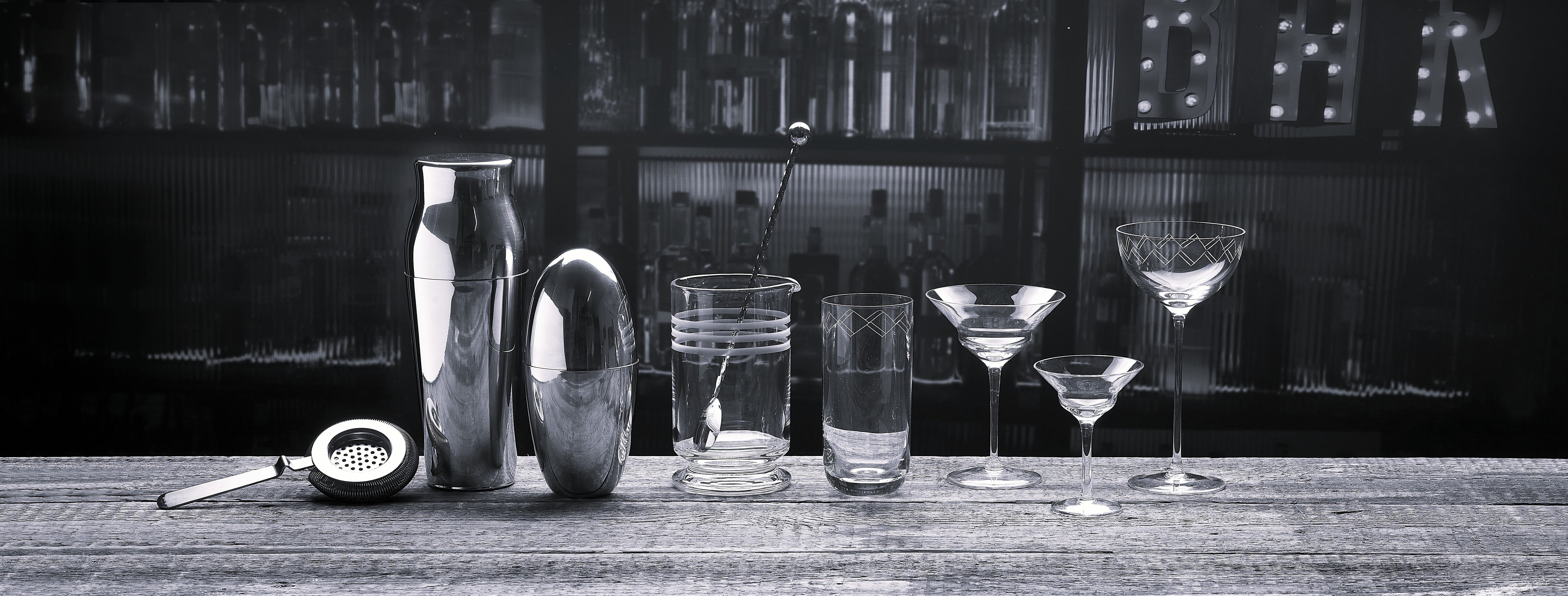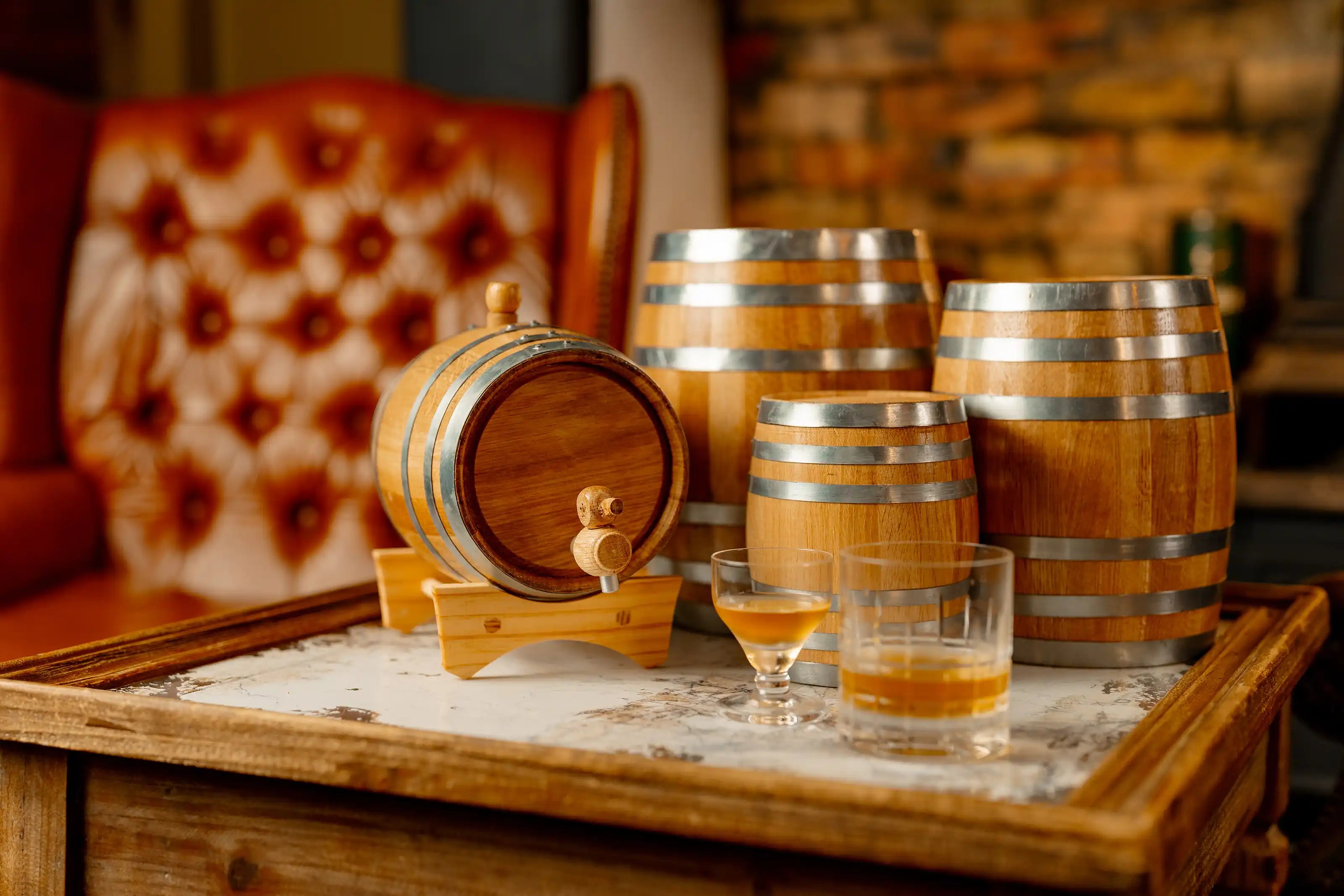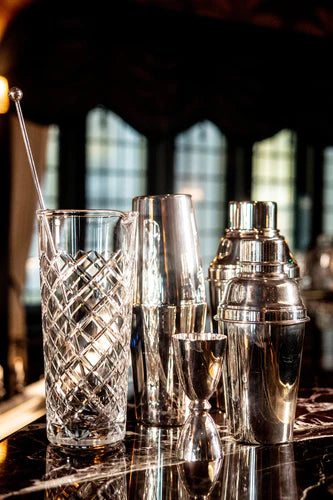Care and attention is always recommended when handling and cleaning our glasses. Caring for glassware in the correct way will increase their lifespan, and ensure your drinks are represented in the best possible way. Glasses that haven't been washed and dried correctly can retain unwanted odours and toxins that will affect your drinks. Additionally, glasses with grease and water marks will lose their lustre. This is particularly important in whisky and wine tasting where the assessment of colour and translucency is important. Read our information and tips to make sure you are properly caring for your glassware.
Mechanical Shock
Mechanical Shock refers to a physical impact on a glass, usually from another glass, or piece of tableware. All glasses have a certain resistance to mechanical shock, however repeated impacts will reduce the strength of any glassware item.
Thermal Shock
Sudden changes in temperature on a glassware item is known as Thermal Shock. Due to the dense nature of glass, fast expansion and retraction of the material when exposed to heat or cold can weaken the overall structure of the item. All glassware has a certain level of thermal shock resistance, however repeated exposure to sudden temperature changes can lead to glassware breakages. Thermal Shock is often the main cause of glass breakages in dishwashers.
Washing Glassware
By hand:
- Always wash new glasses before first use
- Hand wash glasses individually
- Do not soak with other glasses to reduce the chance of mechanical shock
- Use a suitable detergent and warm water with a non abrasive sponge or cloth
In a glasswasher:
- Use a dedicated machine for glassware; wash crockery and cutlery separately
- Make sure to set the glasswasher to a low temperature
- Use a glass rack; never use a flatware rack or plate rack
- Ensure rinse aid is always topped up
Drying glassware:
- Air dry glasses where possible - cloths can spread grease and dirt that can leave unwanted odours and toxins
- After washing, leave glasses to dry in an upturned position
- Once dry, use a soft dry glass cloth to remove water marks - this retains the clarity of glassware
Storing glassware:
- Avoid the rims of glasses coming into contact with other glasses, especially martini glasses and other glasses with wide rims
- Use glass jacks for back of house storage - these compartmentalised boxes keep your glasses from coming in to contact with anything else
- Use shelf liner on hard surfaces - these soft mats protect glasses from hard surfaces and provide air-flow for air drying
Using glassware:
- Never scoop ice with a glass; use either an ice scoop or ice tongs and place the ice for reduced mechanical shock
- When pouring hot drinks, always preheat the glass with warm water
- Conversely, never put cold water or ice into warm or hot glasses
- Never use glasses in an oven, microwave, or freezer, unless they are specifically designed for this purpose
Collecting glassware:
- Never collect multiple glasses in one hand where they can come in to contact with other glasses
- Never stack a glass unless it has been specifically designed for stacking
- Use glass collection baskets where possible, or individually place on non slip trays
- Avoid bus boxes where possible
-
 By Sam Vince on
By Sam Vince onGlassware and Barware Handling Guide
Glassware and Barware Handling Guide At the heart of Urban Bar is our unwavering passion for quality products to help deliver the best drinks service and create that moment. We...
-
 By Alex Pickering on
By Alex Pickering onCaring for Oak Barrels
Delving in to the world of barrel ageing spirits is an involving hobby. Barrel care is an important part of the process to ensure you get the most out of...
-
 By Alex Pickering on
By Alex Pickering onCaring for plated stainless steel
Made from 18/8 stainless steel, our barware uses the more premium steel in the hospitality industry. Despite this high end construction, plated steel requires great care to maintain it to...





